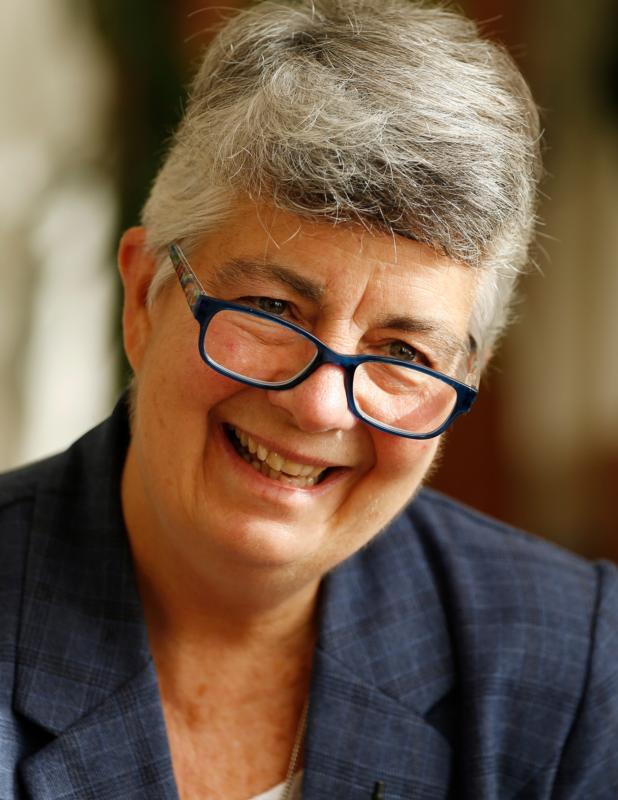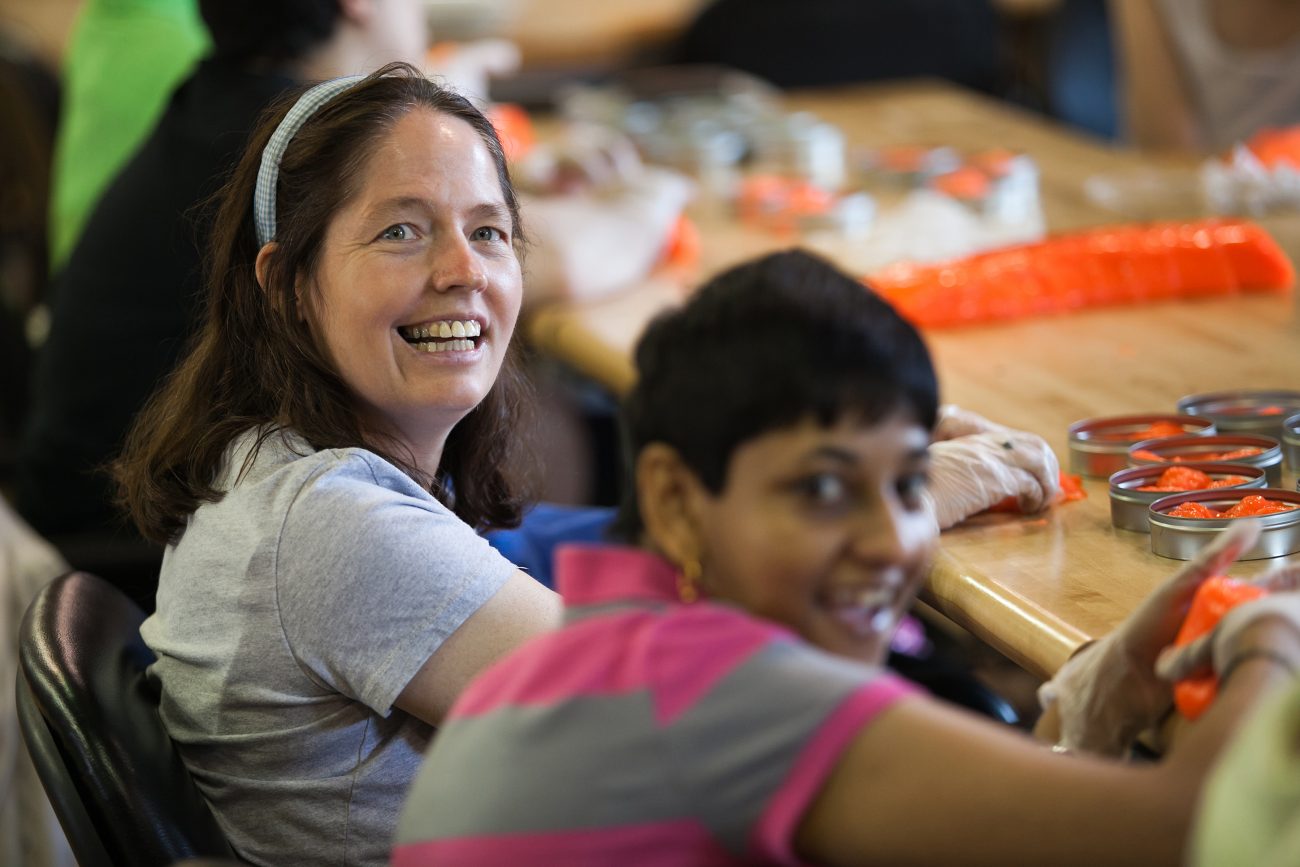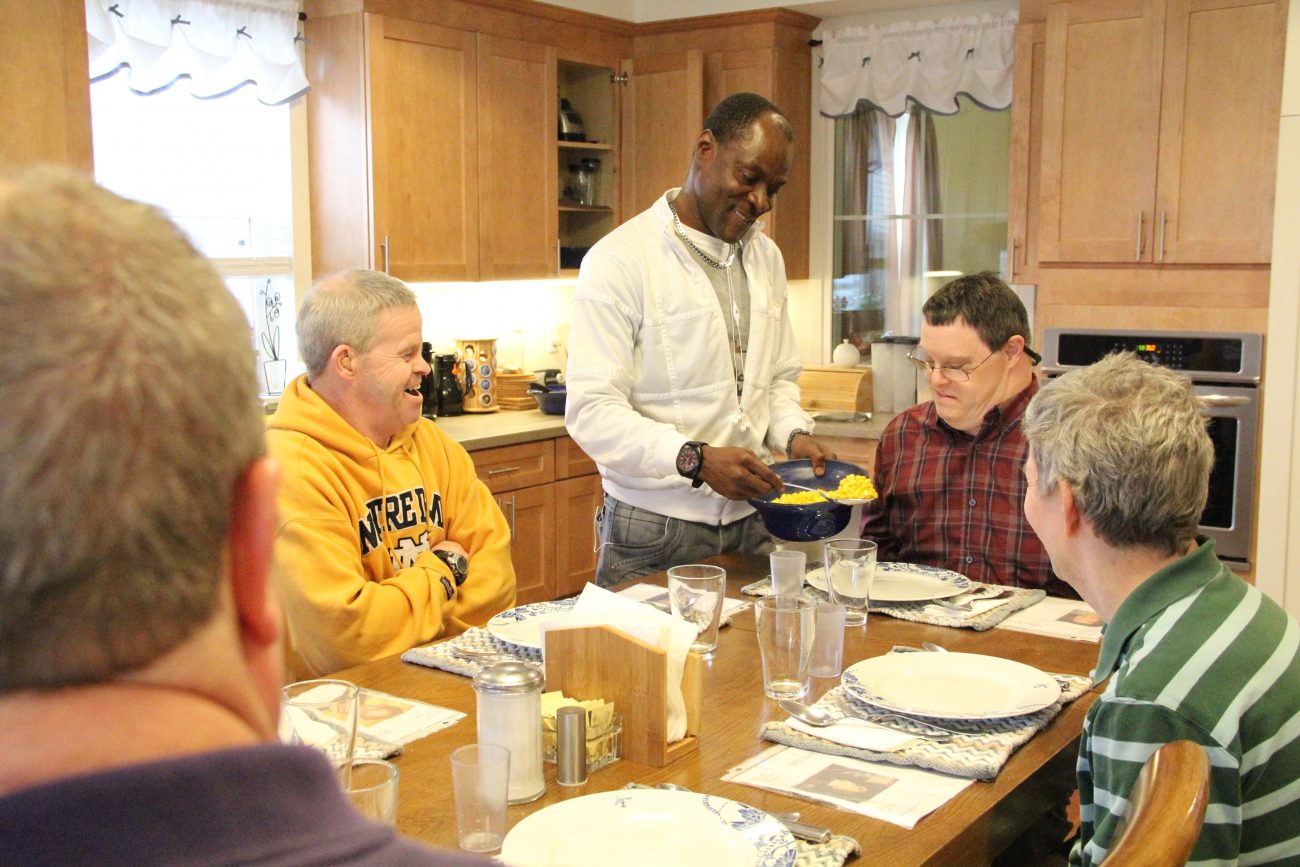Thirty years after the passage of the Americans with Disabilities Act (ADA), real progress has been made by the nation in supporting persons with disabilities — but there’s still a long road ahead, especially as the global population ages.
That’s according to professionals who oversee an array of Catholic ministries and services in the Archdiocese of Philadelphia for persons with physical, intellectual and developmental disabilities.
“Work has been done,” said Francis Swiacki, executive director of developmental programs for archdiocesan Catholic Social Services (CSS). “But not unlike the issue of racial justice, we can do better. It’s an ongoing mission of love.”
[hotblock]
With 26% (or 1 in 4) of U.S. adults having some type of disability, that multifaceted task is one for church, state and local communities and individuals, said Swiacki and several colleagues, who stressed that the goal is far greater than mere regulatory compliance.
“If we lose sight of the purpose behind these regulations — if we don’t have the why we’re doing what we do — then something’s lacking,” said Servant of Charity Father Dennis Weber, director of mission identity and integration for CSS’s developmental programs division.
The “soul of the work,” he said, lies in “the dignity of the human person and … the protection of human life.”
A history of helping
Enacted July 26, 1990, the ADA prohibits discrimination against persons with disabilities, guaranteeing them equal opportunities to employment, goods, programs and services. Modeled after the Civil Rights Act of 1964 and a section of the Rehabilitation Act of 1973, the legislation was a milestone, the world’s first “comprehensive declaration of equality for people with disabilities,” said the ADA National Network on its website.

Immaculate Heart Sister Kathleen Schipani, director of the Office for Persons with Disabilities and the Deaf Apostolate at the Archdiocese of Philadelphia, is pictured during an interview in Rome Oct. 20. Physical and mental disability does not limit a person’s call to holiness, she said, and persons with impairments should be recognized as “agents of evangelization.” (CNS photo/Paul Haring)
The act was partly informed by a 1978 pastoral statement from the U.S. bishops “promoting an understanding of equal access and justice” for persons with disabilities, said Immaculate Heart Sister Kathleen Schipani, director of the archdiocesan Office for Persons with Disabilities and the Deaf Apostolate.
Since 1982, the National Catholic Office for Persons with Disabilities, now the National Catholic Partnership on Disability, has sought to implement the pastoral message.
In 1995 the U.S. bishops issued guidelines for celebrating the sacraments with persons who have disabilities, followed in 1998 by a 10-point framework for broadly expanding access and inclusion.
Although her office was established in 1991, Sister Kathleen noted that outreaches “related to disabilities have been going on in the Archdiocese of Philadelphia … for at least a hundred years.”
An archdiocesan deaf ministry has been in place for more than a century, she said, with Archbishop Ryan School for the Deaf opening its doors in 1911.
St. Edmond’s Home for Children, the first Catholic home of its kind in the U.S., was established in 1916 to serve polio victims, and the Rosemont-based intermediate care facility (ICF) now supports children aged six weeks to 21 years who are affected by a range of profound physical and intellectual disabilities.
[tower]
Archdiocesan disability ministry grew rapidly during the mid-20th century. In 1953 St. Katherine Day School, which educates special needs students, became the first such school in the United States. Our Lady of Confidence Day School followed in 1954 and St. Lucy Day School for Children with Visual Impairments in 1955.
The four archdiocesan schools of special education continue to instruct students with sensory, cognitive and physical impairments, as well as those on the autism spectrum.
In 1948 Cardinal Dennis Dougherty invited the Daughters of St. Mary of Providence to establish a school for women with intellectual disabilities. Ten years later Cardinal John O’Hara asked the brothers of the Servants of Charity to open a similar program for boys, which was named the Don Guanella School in honor of the order’s founder.
Eventually, the two facilities merged to form what are now the Communities of Don Guanella and Divine Providence (DGDP). Administered by CSS, the communities are a state-licensed ICF for individuals with intellectual disabilities, ensuring a continuum of support through community and campus-based living arrangements, life sharing through family living, in-home assistance, respite care and day programs.
‘It is a life issue’
Today, public-private partnerships are essential to the archdiocese’s commitment to serve those with disabilities, said Edward Lis, director of Catholic mission effectiveness for archdiocesan Catholic Human Services.
“We have a really robust and fruitful relationship with public entities, regulators, funders and policy guides,” said Lis. “The ADA is a way of demonstrating we are walking in unison with government concerns and civil society to provide for those who are most vulnerable in these particular populations.”
Barbara Jenkins, DGDP’s director of admissions and communications, agreed.
[hotblock2]
“We’re always trying to do what the law requires,” she said, adding that the dynamic is one of “relationship building” to foster “community inclusion” for DGDP residents and program participants.
“Being part of a faith-based mission helps us all to connect,” said DGDP administrator Jean Calvarese-Donovan. “There is a positive difference in the supports we provide, because it is all interwoven with our Catholic faith and commitment to service.”
At the same time, there is room for improvement “in terms of sensitivity to persons with disabilities within the church,” said Father Weber.
The planet’s rapidly aging population and steep decline in birthrates indicate “this question of disability will affect more and more of us,” Swiacki said, with medical issues, including dementia, becoming increasingly prevalent.

Residents of the archdiocesan Communities of Don Guanella and Divine Providence enjoy a break from an activity session, July 20, 2015. Advocacy for the rights of those with disabilities is a pro-life issue of increasing urgency as the global population ages, say archdiocesan leaders of disability outreaches. (Photo courtesy of Barbara Jenkins / Communities of Don Guanella and Divine Providence)
Aging parents of persons with disabilities worry that their children will be left vulnerable once they themselves are no longer able or alive to advocate for them, said Sister Kathleen.
For all of those reasons, she said, Catholics need to put their faith into action on behalf of their brothers and sisters in Christ.
“It’s part of our call … to know Catholic social teaching, and (to) support legislation that promotes the value of people with disabilities, from conception to natural death,” said Sister Kathleen. “It is a life issue.”
Ensuring equitable work and pay “is another way that Catholics can respond,” she said, since lay people, more than clergy and religious, are directly “involved in hiring and making employment decisions.”
“The Catholic Church’s mission … (includes) serving those with disabilities” through creativity, innovation and technology, said Kevin Barr, DGDP’s director of corporate and foundation relations.
Barr pointed to DGDP resident Garrett Goetz, a 20-something young man who entered the community when his family relocated for work about four years ago from North Carolina to Pennsylvania.
When employment recently recalled them back to North Carolina, the parents of Goetz – who is blind and nonverbal – realized their son had found a “his second family among the staff and his roommates,” said Goetz’s mother, Judy.
To ease the transition to their son’s more independent living arrangement, Barr and his team arranged for nightly Zoom and FaceTime meetings between Garrett and his family.
Last year, Sister Kathleen’s office launched the “Religious Signs for Families” app to help deaf children and their family members learn prayers in American Sign Language. Now in Apple’s App Store and Google Play, the app fills a critical pastoral need uncovered by Sister Kathleen, who in her work discovered she was usually the very first person to teach deaf children to pray.
Looking ahead, the church must see “people with disabilities not simply as persons with needs, but as persons with gifts,” said Lis.
That shift has in some ways already begun, said Sister Kathleen, noting that a number of clergy with physical impairments have been ordained.
In 2017, Archbishop Charles Chaput opened the canonization cause for Upper Darby native and Augustinian Father William Atkinson, who had been paralyzed as a seminarian. Last year, Pope Francis declared Darwin Ramos, a Filipino teen with muscular dystrophy, a Servant of God.
“Honestly, these things would not have happened 50 years ago,” said Sister Kathleen, adding that such signs “indicate the reality of what we believe.”
“People with disabilities are agents of evangelization,” she said. “Physical and intellectual disability does not limit the person’s ability to respond to the call of holiness.”
PREVIOUS: Biking for Vocations ready to ride through 19 parishes
NEXT: Novena for end of pandemic begins this week




Share this story